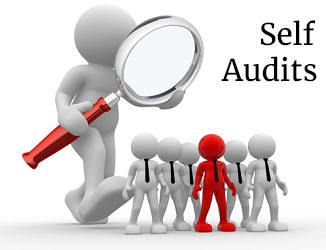…Or Is Stress In Control Of Us?!
How does your current stress level and mental health compare with 3 months ago? 6 months? A year ago? Globally, we’re all sharing the stress of Covid-19 and trying to adapt one day at a time as best we all can in the ways that we can. But — what about all the other stresses you already had on your plate before the pandemic? Is it really okay if those older and long-term stresses are still on your plate (and shoulders) today? Is it okay if they are still there in 3 more months or this time next year? Why or why not?
What about others within the your industry or profession (e.g. your supervisors, partners, co-‐workers, assistants, etc.)? Do you ever see actions (or the absence of appropriate and necessary actions) that could be or already are harmful to clients/customers and to the integrity of your profession, industry and workplace? Do you roll your eyeballs, shake your head and then promptly bury it in the sand…in other words, do you usually NOT take action of any kind when you see potentially harmful behavior in others?
If you do…our heartfelt thanks as it takes courage, effort and tough skins to do the right thing. And, if you do nothing, I hope you’ll never make that decision again….we all need to take care of ourselves wisely, help one another and to help protect our professions and various industries even when it’s most uncomfortable to do so.
Bigger Question: How are we as individuals coping mentally as we live our busy lives at what seems like no-‐choice supersonic speeds?
Of course, we can’t begin to scratch the surface of such a huge topic quickly. And, this article, of course, can’t do that either. It’s my hope, however, that it may give you some workable ideas on figuring out the state of your current mental health. Why should we do this? Because if we don’t check our own mental health and coping abilities regularly, someone else will eventually step in and do it for us. And, when that happens, we can be guaranteed that other “costs” will be attached thanks to our procrastination.
Ditto to those of us working within the legal system for doing our parts to maintain and protect our self-‐regulating legal profession. Haven’t we all seen attorneys who we suspect (or know) is not representing their clients properly, perhaps they have a drug problem, are depressed, overly disorganized and/or just recklessly sloppy in representing their clients? It’s far too easy to put our heads in the sand, isn’t it…to think we’re too busy to help, or we don’t want to butt in or “Who are we to judge another?” The list of excuses given by “keeping-‐my-‐head-‐in-‐the-‐ sand” attorneys is a frighteningly long one.
Well, if we aren’t willing to reach out and help protect the public or to reach out to our colleagues with mental health challenges or at least to ensure the proper persons are alerted, then who is? If you haven’t re-‐read the Rules of Professional Conduct with an emphasis on 1.6 (Confidentiality) and 8.3 (Reporting Professional Misconduct) lately then please do that for starters.
If nothing else and regardless what industry or profession we work within, we must first identify and face with brutal honesty the true state of our stress levels and mental health. This means being willing to accept and be totally aware of our real situations with no editing, photo shopping or excuses…period.
Then we have to make our short and long-term action plans for fixing what needs fixing. And, finally, we must select the appropriate safeguards to ensure we don’t backslide which hurts ourselves, our families and our professions.
So…. via a simpler list to see if we are in control of stress, let’s:
1. Identify FULLY if we may be mentally “impaired” even in the smallest of ways;
2. Create simple action plans to map out all the restorative and corrective steps we need and will indeed commit to take; and
3. Ensure we have safeguards in place to prevent our backsliding

I. Identification
A Few (and only a few!) of the Types of Mental Health Roadblocks or Impairments
- Burnout
- Workaholism
- Depression
- Substance Abuse including Alcoholism
- Sleep Deprivation
- Social Media Overload
- Bullying Nature
- Chronic Whiny, Never-‐Happy Attitudes
- Technology Fear & Exhaustion
- Food Allergies & Intolerance
- Failure to avoid altogether or to properly handle unavoidable toxic people
- Panic Attacks
- Procrastination Plus
- Hyperactivity
- Operating 99% of the time in full-‐speed-‐ahead mode
- Denial, Denial, Denial!
…and so many more.
Acknowledge if you or someone who know shows any of these signs. You may also want to be on the lookout for:
- Your or others’ productivity level been on a downward spiral?
- Any extreme mood changes?
- Ongoing disgruntlement, anger, frustration, etc.?
- Trouble staying focused?
- Hard to get to sleep or to stay asleep?
II. Create a Simple Action Plan (a/k/a “Roadmap,” Cheat Sheet)
Email me and request a copy of my Action Plan form or use any format that works for you. As far as simplicity and success rates, however, I have used this for many years for law firms, other types of businesses and individuals’ strategic, marketing and employee plans. There’s no magic in it except for its simplicity and the energy and effort provided by the people it is created to help.
The philosophy for its format is also simple. In order to up the odds of achieving any of our goals (and isn’t that the point!?), we must at least do these four things. This is true regardless of our areas of law or the size of our firms. There are, of course, other things that would be very wise to do as well, but here are the four “must do’s” based on my experience (and remember, I’m no young chick so my years go waaaay back!)
THE ESSENTIALS:
- Write our goals down;
- Detail out who/what/when for all steps we need to take to reach each goal;
- Monitor our progress regularly….this means daily preferably; and
- Hold ourselves and others accountable to carry out each and every step.
III. The Safeguards (just a starter list…PLEASE add and keep adding to this one!)
- (A) Rethink often all the reasons you wanted to be a part of your profession in the first place and why it’s important to you to stay in it (e.g. your original reasons, to meet your professional, financial and personal goals, etc.)
- (B) Frequent re-‐identification and brutal honest regarding the stresses in your life
- (C) Frequent re-‐identification of how you may be “impaired” no matter how trivial it may seem next to bigger impairments (see list above)
- (D) Seeking help informally or professionally as needed from trusted and experienced resources
- (E) Daily review of your simple Mental Health action plan(s) to ensure progress is ongoing and there are no areas of procrastination or total stagnation.
- (F) Take time to think and rethink often about your personal and professional ethics and values (as corny and unnecessary as that may seem….remember our 90 mph life styles don’t allow such “time outs”…we must recognize we need them and are worth the time needed to do these things)
- (G) Be honest with yourself….look squarely in the mirror…and deal with what you must….
- (H) Accept we humans just “ain’t perfect and will mess up, slide backwards some times or just pure get lost for a while…..When, however, we have the “tools” in place to help catch us, then we’ll be okay, our profession will be better for our efforts and we will be living up to our best and fullest potentials! Life is just too dang short to do otherwise, right?!
And, if you can bear with me just a few more minutes….here are just a few more important questions:
- Do you have employees you supervise?
- If so, is there a realistic mental health policy in place for them (an up to date one that is!)?
- Do you encourage them to do all the things we know are beneficial to maintaining our mental health?
- Do you set a good example of HOW to do #3?
- Do they have your support and guidance when they may need assistance…perhaps mentoring, coaching or a more professional type of help in conflict resolution, anger management, communications, stress management, etc.?
- Do you ensure mental health workshops are given in your office or via third party sponsors for all your employees ?
- Ever done a community volunteer project together with your employees, co-workers and/or partners? If not, it is a great way to give back, to take your mind off your own troubles and to work together as a team outside of the normal “fun” office activities and to do’s. Try it and I bet you will keep it as a priority on your “must do” list for you and your employees.
Okay…that’s it … almost! Thanks for all you do each and every day for your profession. Just don’t forget along your fast-‐moving journey to take care of yourself, to be honest with yourself (so much easier to say than do!), to be proud of YOU for there really is only one you, be kind to yourself and to pat yourself on the back for every step you make in the right direction.
 And, when you do feel you have screwed up whether big or small, face it, learn from it, gain from what you have learned and then leave it behind you…..maybe one of my favorite prostitute (yep, you read it right!) stories will help you learn to live in the moment and to let the past go ….
And, when you do feel you have screwed up whether big or small, face it, learn from it, gain from what you have learned and then leave it behind you…..maybe one of my favorite prostitute (yep, you read it right!) stories will help you learn to live in the moment and to let the past go ….
Two monks were down by the river. A prostitute was trying to cross, but could not do so on her own. One of the monks carries her across, sets her down, then the two monks keep on going. The monk who didn’t carry her gets more and more agitated as they go along. Finally, he asks his fellow monk, “Why did you do that? You know we are not supposed to even touch women like that!?”And the monk who carried her said, “I left her by the river. Why are you still carrying her?”
That’s the secret of productivity and forgiveness. To always think, why am I still carrying her?
So! Let’s learn from our past mistakes, apply the lessons learned to this moment – the now – and keep moving forward one step at a time.
Progress not perfection, honesty not denial and smart planning not chaos. Thanks so much for sticking with me and please share your coping and de-stressing tips in the comment section below.
“Do not confuse motion and progress. A rocking horse keeps moving but does not make any progress.”~Alfred A. Montapert

